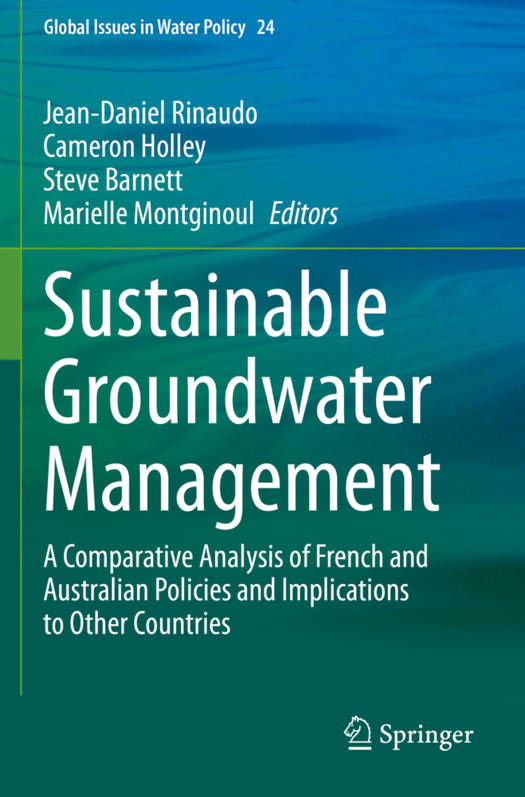
- Retrait gratuit dans votre magasin Club
- 7.000.000 titres dans notre catalogue
- Payer en toute sécurité
- Toujours un magasin près de chez vous
- Retrait gratuit dans votre magasin Club
- 7.000.0000 titres dans notre catalogue
- Payer en toute sécurité
- Toujours un magasin près de chez vous
Sustainable Groundwater Management
A Comparative Analysis of French and Australian Policies and Implications to Other Countries
Description
This book describes and analyses the diversity of possible approaches and policy pathways to implement sustainable groundwater development, based on a comparative analysis of numerous quantitative management case studies from France and Australia.
This unique book brings together water professionals and academics involved for several decades in groundwater policy making, planning or operational management to reflect on their experience with developing and implementing groundwater management policy. The data and analysis presented accordingly makes a significant contribution to the empirical water management literature by providing novel, real world insights unpublished elsewhere.
The originality of the contributions also lies in the different disciplinary perspectives (hydrogeology, economics, planning and social sciences in particular) adopted in many chapters.
The book offers a unique comparative analysis of France, Australia and experiences in countriessuch as Chile and the US to identify similarities, but also fundamental differences, which are analysed and presented as alternative policy options - these differences being mainly related to the role of the state, the community and market mechanisms in groundwater management.
Spécifications
Parties prenantes
- Editeur:
Contenu
- Nombre de pages :
- 562
- Langue:
- Anglais
- Collection :
- Tome:
- n° 24
Caractéristiques
- EAN:
- 9783030327682
- Date de parution :
- 17-03-21
- Format:
- Livre broché
- Format numérique:
- Trade paperback (VS)
- Dimensions :
- 155 mm x 235 mm
- Poids :
- 1029 g

Les avis
Nous publions uniquement les avis qui respectent les conditions requises. Consultez nos conditions pour les avis.





